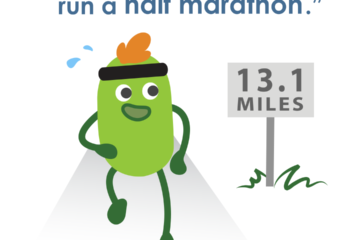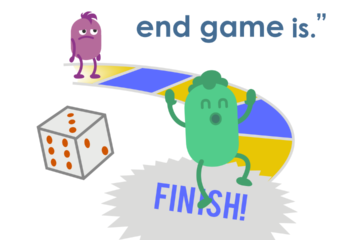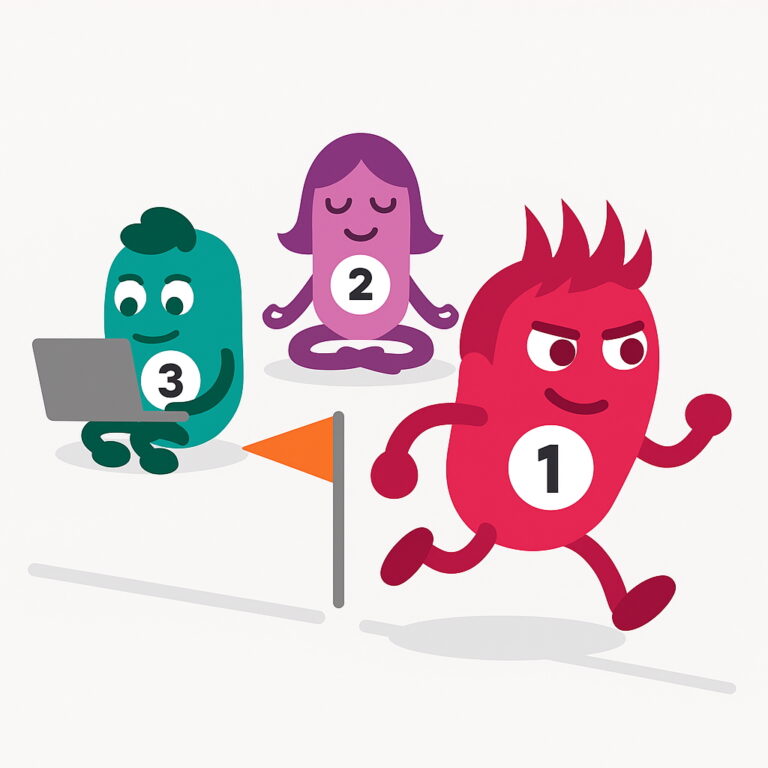How do accountability partners help each other stay on track, manage distractions, and perhaps most significant, their emotions? While each relationship is unique, Molly and Jenny are two GetMotivatedBuddies who have developed an ultra-successful system to work through their difficulties and stay motivated. In the interview below, see if you can find the techniques they use, and leave them in the comments.
Meet Jenny and Molly


First Name: Jenny
Sex: Female
Age: 40
Timezone: CST Central Standard Time GMT -6:00
Describe yourself primarily as: Employee
What area you’d like to improve: Habits
Goal in this area: Get up by 6:30am, have time to get ready, journal, plan, etc. Potentially add in exercise down the road.
Greatest weakness: I stay up too late and I talk myself out of my own commitments.
Greatest strength: I’m very logical and organized.
How often would you like to be in contact: 1x a day
Preferred mode of contact:
– SMS
– Email
Anything else you’d like your buddy to know: I’m open minded to try any tricks or ideas my buddy might have. And I’m pretty reliable so I’ll do my part to help her be accountable as well. I’m not opposed to face to face meetings but I’m a bit of an introvert so I do better with written communication like texts and emails. There are several hours a day that I may not be able to respond right away due to my work, but I’ll always respond before the day is over.
First Name: Molly
Sex: Female
Age: 41
Timezone: CST Central Standard Time GMT -6:00
Describe yourself primarily as: Stay-at-home Parent
What area you’d like to improve: Habits
Goal in this area: Drink less, lose 25 lbs.
Greatest weakness: Getting bored and drinking/overeating
Greatest strength: I’m very organized and competitive.
How often would you like to be in contact: More than 1x week
Preferred mode of contact:
– SMS
– Email
– Messenger
– Whatsapp
Anything else you’d like your buddy to know: I’m also self-employed and run an IT business with my husband. I have a 2.5 year old and a 1 year old, and it’s all making me crazy!
The term “accountability partner” isn’t commonly used. Where did you first hear about it, (or did you even hear it) and what made you think it might be a good idea for you?
Jenny: I can’t recall where I first heard the phrase, but I realized it was something that would work for me because I do better at accomplishing tasks that I have told another person I would do. In other words, I am great at keeping my word with other people, while I often give myself excuses to put off the things I want to accomplish.
Molly: I heard it on Reddit and thought it might help me make progress on my goals.
What had you been trying before that wasn’t working?
Molly: Willpower, apps, trying different diets and workouts.
Jenny: Prior to this program, I had tried self-accountability and apps. I was consistently trying to “amp myself up” to accomplish my goals, and regularly failing to do so. I could ignore the app reminders, but I can’t ignore a text from my Motivation Buddy asking how I’m doing on my goals.
Once you decided that finding someone to work with might be helpful where did you go? What was your plan to find someone?
Jenny: I hadn’t decided to find someone to help me, but I belonged to a couple subreddits that had become places I’d go to find motivation and to read others’ stories. That helped me to some extent, but I was happy to find a link to the Motivation Buddy program in one of the subreddits, and ultimately I’ve had way more success with this program than with anything else I’ve tried.
Molly: I went to Reddit, and they have a sub dedicated to matching people with similar goals. When I didn’t get matched, someone recommended this site, so I signed up and hoped to find a match.
Did you have a plan in mind of how you would work with the person? Did you imagine the perfect scenario of a relationship?
Jenny: I originally expected that the relationship would primarily be over email, and that we’d simply connect regularly (perhaps weekly) to discuss our individual progress on our goals and daily habits.
Once you joined GetMotivatedBuddies how long did it take you to match with one another, and what made you decide to accept your buddy?
Jenny: I was sent an email match almost immediately. I accepted right away and my partner emailed me within 24 hours. I decided to accept because she was near my age and in my time zone. Although we had different goals, some of her goals were things that I had accomplished in the past, and I thought I would be able to help her with those. That made me feel like I could give as much as I needed to take, and that I wouldn’t be asking too much of a stranger to help me with my goals because I could help her as well.
Molly: I think it took about a week. I wanted to match with Jenny because her goal was rising early and I do that easily, and getting help with school and I love school. I also liked that we’re the same age range, so understand where our lives are in our 40s.
Once you matched what happened? How did you move forward? What kind of conversation did you have? Did you set up a system?
Molly: I got an email from getmotivatedbuddies and matched and then I emailed her and we introduced ourselves and talked about what we wanted to do.
Jenny: We began emailing one another for about 2 weeks. This worked fine but felt really impersonal. We finally shared our phone numbers and began texting, and this has helped us connect on a deeper level of friendship. We now talk about anything and everything, from our personal lives to our work to our exercise habits and of course our goals. It is nice to have someone to talk to outside of my inner circle. It’s like having a therapist who will listen without judgment but also not dig too deep!
As you started to work together did you find you needed to change anything?
Jenny: The main thing that changed was going from emailing to texting and it has helped tremendously. Along the way we have tried a few different apps together (food logging and habit tracking), and some have worked and some haven’t. But we remain accountable to each other and continue to check in daily.
Molly: Emailing wasn’t easy for me and my schedule, so we switched to texting, which became much easier. We also tried out some apps together to see if we can find one to work on our goals together.
How do you primarily communicate and how often?
Molly: Texting daily or a few times a day depending on what’s going on.
Jenny: We text daily.
Do you feel the buddy partnership has helped? If so, how?
Molly: It’s helped immensely! I feel like Jenny is a good friend who is pushing me to make good decisions and is there when I need some motivation, or when I slip, she reminds me I can get up again and keep going.
Jenny: It has helped me so much. I have gained a friend and someone who understands the struggle of trying to do things that are difficult. She will listen to me gripe about my struggles and will congratulate me when I am able to do the tasks and habits that I set out to do.
What are the pitfalls of this kind of relationship?
Jenny: Although we have not run into this issue, I could see that some people may not be willing to give as much to their partner as is needed, and may “flake out.” I also feel that I am lucky to have found a partner who is so similar in mindset and personality. We sort of speak the same language, so it was so easy to connect. I could see that some people may be matched with someone who is not on their same level or doesn’t get their jokes, etc.
Molly: One person might be more invested in the other and it could become co-dependent if that’s in your nature. Luckily, neither of us have those characteristics.
What advice would you give other buddies who have started to work together to encourage a successful working partnership?
Molly: Be honest, tell each other what you want. If you feel like you’re not doing enough, ask what helps. Find out what motivates the other person and use that method. Keep in touch!
Jenny: I think one of the more important things to remember is that this relationship is a two-way street. Be sure to make a meaningful effort to check in on your partner and encourage him/her. Don’t expect them to always be there for you if you haven’t been there for them. Also, consider taking up some of the habits that your partner is working on, even if they aren’t necessarily important to you. This will help you understand where they are coming from and can help you both feel like you’re in the same boat. Some examples might include food logging, daily exercise, getting up early, meditating, journaling, etc. If these are things your partner wants to do, but you don’t necessarily have them on your to-do list, try doing them with your partner, even for a brief period of time, and I bet you’ll have a better understanding of what makes these habits challenging.
Anything else you want to say…just because you can?
Molly: Jenny is great and I hope I can lose the weight she did and I find it hard to believe that a program on the internet can be so helpful!
Jenny: I appreciate this program so much. I have been more successful with my Motivation Buddy than I had been trying to go it alone. It is nice to have someone to be my cheerleader for accomplishing even the smallest task, and it’s a good feeling to be able to help another person achieve their goals, even if it is simply by encouraging them and checking in on their progress. Thanks for creating this program, and for matching me with Molly!



